Once Thought Extinct, This Prehistoric Bird Is Thriving Again In The Wild
November 13, 2024
In a triumphant return from the brink of extinction, the South Island takah─ō, New Zealand’s unique, flightless swamphen, is making a comeback in its native habitat.
Known for its striking blue and green plumage and playfully described as “psychedelic disco chickens,” these birds hold a significant place in New Zealand’s natural and cultural heritage.
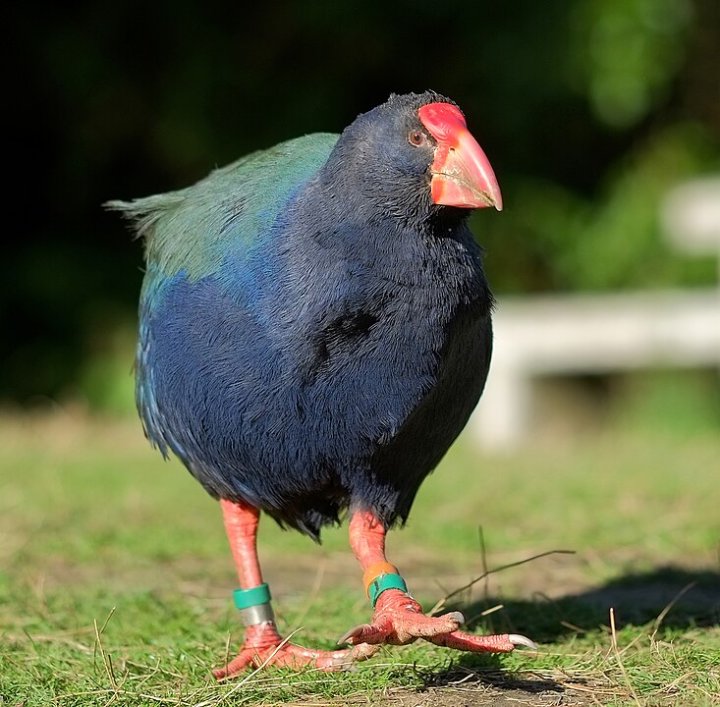
A takah─ō in South Island
Even though the takah─ō was once believed extinct, recent efforts have sparked new hope, showing that these birds are, indeed, thriving in the wild.
In August 2023, the Department of Conservation (DOC) and the Ng─üi Tahu tribe took a bold step in takah─ō conservation by releasing 18 of these rare birds into the mountainous region of Greenstone Station, a protected tribal land in the South Island.
Just one year later, the DOC has happily reported that the takah─ō population on this land is “thriving,” with eight out of ten breeding pairs nesting soon after release. Several chicks have hatched, marking a promising start for these newly established families.
“It’s particularly promising that eight out of 10 pairs started nesting within a few months of being released, exceeding our expectations and showing they are settled enough to breed," said DOC Takah─ō Recovery Operations Manager Deidre Vercoe. "We believe seven to 10 chicks hatched but some young chicks commonly die in the first weeks and months of life from natural causes."
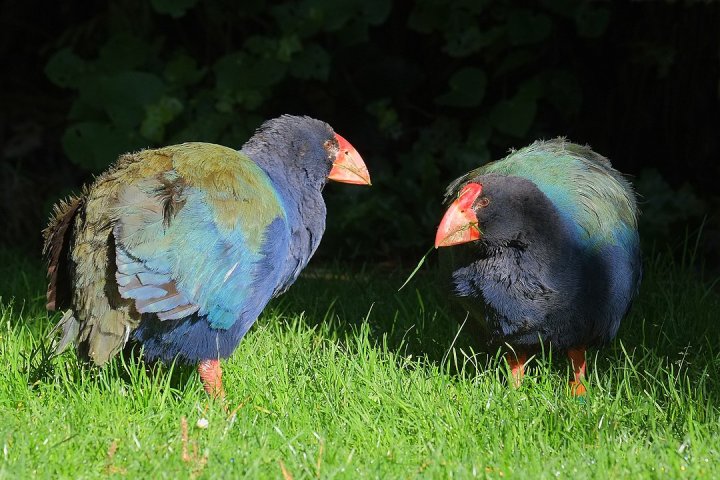
A male and female takah─ō
Today, New Zealand’s national takah─ō population stands at around 500, with an annual growth rate of about 8%—an encouraging sign of resilience.
Fulton Hogan New Zealand CEO Ben Hayward says the Takah─ō Recovery Programme's success in increasing the national population to around 500 birds is a significant milestone.
“The thriving takah─ō population at Greenstone Station is a testament to the collaborative efforts of Ng─üi Tahu, DOC, and our team at Fulton Hogan. Seeing these birds adapt and raise offspring in their new environment is incredibly rewarding," he said in a statement.
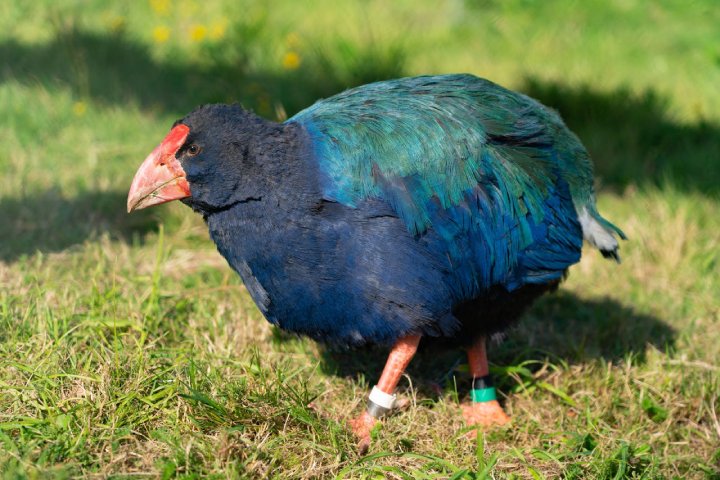
Takah─ō have a fascinating and somewhat mysterious history.
First identified by European scientists in 1847 from fossilized bones, the South Island takah─ō was soon believed extinct, as no living birds could be found despite persistent efforts.
However, scattered sightings continued to surface, with hunters and settlers describing encounters with “giant pukakis”—large, blue-and-green birds unlike anything else in the wild. One group even recalled chasing a bird “the size of a goose, with blue-green feathers and the speed of a racehorse,” though they couldn’t capture it.
In an extraordinary turn of events, a small group of takah─ō was rediscovered in 1948, a revelation that reignited hope and launched what is now the Takah─ō Recovery Program. This ongoing conservation effort has since helped bring the takah─ō population back from the edge, creating a brighter future for these rare and remarkable birds.
Click Here For The Most Popular On Sunny Skyz
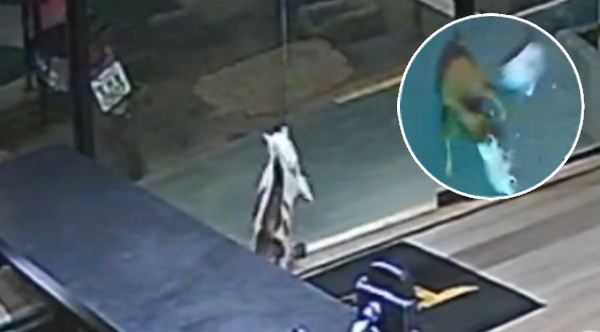 HERO Cat Charges Out Of Gym To Save Feline Friend From Vicious Dog Attack
HERO Cat Charges Out Of Gym To Save Feline Friend From Vicious Dog Attack
 10 Marriage 'Cheat Codes' That Actually Work, According To Men
10 Marriage 'Cheat Codes' That Actually Work, According To Men
 Extremely Fearful, Shut Down Foster Dog Finally Gives Humanity A Chance Again
Extremely Fearful, Shut Down Foster Dog Finally Gives Humanity A Chance Again
 'You Were My Guardian Angel': ManŌĆÖs Silent Act Comforts Crying Woman On Train
'You Were My Guardian Angel': ManŌĆÖs Silent Act Comforts Crying Woman On Train
 Big Cat Named Marcell Goes Viral, Gets Adopted With His Best Friend
Big Cat Named Marcell Goes Viral, Gets Adopted With His Best Friend
 WomanŌĆÖs Encounter With NFL Rookie On Plane Goes Viral
WomanŌĆÖs Encounter With NFL Rookie On Plane Goes Viral
 HERO Cat Charges Out Of Gym To Save Feline Friend From Vicious Dog Attack
HERO Cat Charges Out Of Gym To Save Feline Friend From Vicious Dog Attack
 This 'Over the Rainbow' Duet On Britain's Got Talent Will Leave You Speechless
This 'Over the Rainbow' Duet On Britain's Got Talent Will Leave You Speechless
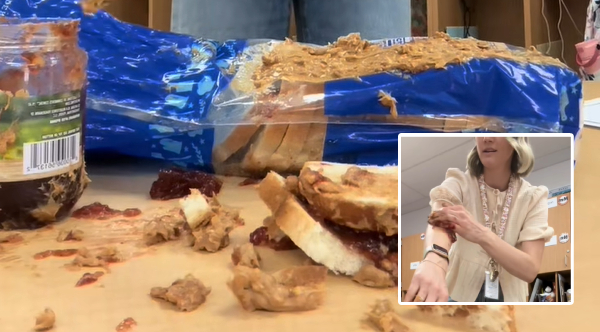 Teacher Covers Herself In Peanut Butter And Jelly To Teach Her Class A Hilarious Lesson
Teacher Covers Herself In Peanut Butter And Jelly To Teach Her Class A Hilarious Lesson
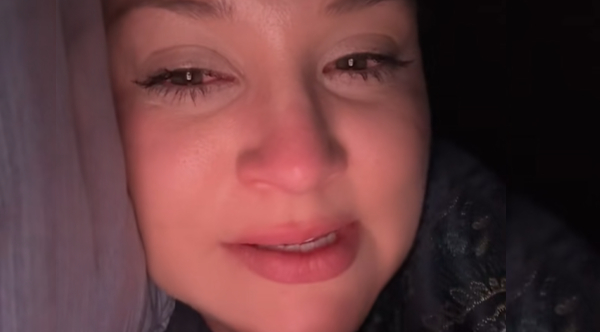 'You Didn't Owe Me Anything': Woman In Tears After StrangerŌĆÖs Help On Plane
'You Didn't Owe Me Anything': Woman In Tears After StrangerŌĆÖs Help On Plane
 Gator Saves Kid, Then Kid Saves Gator
Gator Saves Kid, Then Kid Saves Gator
